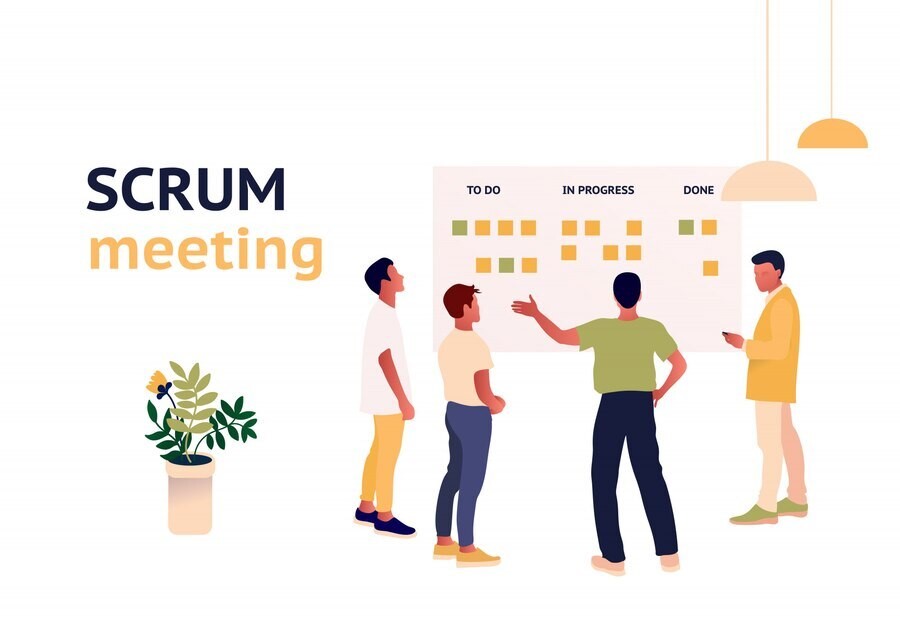Introduction
Scrum, a popular framework within the Agile methodology, has revolutionized the way software development teams operate. At the core of this framework is a Scrum Master, a role dedicated to ensuring that Scrum practices are followed efficiently. One of the key responsibilities of a Scrum Master is to facilitate various events that take place during a Scrum project. In this article, we will explore how a Scrum Master facilitates these events and why their role is crucial for the success of Agile development teams.
Understanding Scrum Events
Scrum defines a set of events that serve as crucial touchpoints throughout a project’s lifecycle. These events provide opportunities for teams to inspect and adapt their work, ensuring that they are always on the right path to deliver value to the customer.
The primary Scrum events are:
Sprint Planning
Daily Scrum
Sprint Review
Sprint Retrospective
Now, let’s delve into how a Scrum Master facilitates each of these events.
Sprint Planning
The Scrum Master plays a vital role in the Sprint Planning event. Before the meeting, they collaborate with the Product Owner to ensure that the Product Backlog is refined and prioritized. During the planning meeting, the Scrum Master guides the team in understanding the Sprint Goal and helps break down the work into manageable tasks. They ensure that the team focuses on what can be realistically accomplished within the upcoming Sprint. The Scrum Master also ensures that the meeting stays time-boxed and productive, helping the team commit to a set of Sprint Backlog items.
Daily Scrum
The Daily Scrum, often referred to as the daily stand-up, is a brief daily event where team members share updates on their work. The Scrum Master is responsible for ensuring that the meeting takes place and that it stays focused on the three key questions: “What did I do yesterday?”, “What will I do today?”, and “Are there any impediments in my way?”. The Scrum Master acts as a coach during the Daily Scrum, facilitating communication and ensuring that any impediments mentioned are addressed promptly.
Sprint Review
The Sprint Review is a crucial event where the team demonstrates the work they’ve completed during the Sprint to stakeholders, including the Product Owner and possibly end-users. The Scrum Master helps prepare for this event by ensuring that the team has a potentially shippable product increment to showcase. During the review, they facilitate discussions and gather feedback from stakeholders. They also ensure that the Sprint Review focuses on inspecting the product increment and does not devolve into a detailed planning session.
Sprint Retrospective
The Sprint Retrospective is an opportunity for the team to reflect on their processes and identify areas for improvement. The Scrum Master facilitates this event by creating a safe environment where team members can openly discuss what went well and what could be done better. They encourage the team to identify actionable improvements and track them for the next Sprint. The Scrum Master’s role is to ensure that the retrospective remains constructive and that the team takes ownership of their process improvements.
Why a Scrum Master’s Facilitation is Essential?
A Scrum Master’s facilitation skills are pivotal to the success of Scrum events. Here are some reasons why their role is so crucial:
Maintaining Focus: Scrum events are time-boxed to keep the team’s focus and prevent over-analysis. The Scrum Master ensures that discussions stay on track, preventing the team from going off-topic.
Conflict Resolution: In any collaborative setting, conflicts may arise. The Scrum Master acts as a mediator, helping resolve conflicts and ensuring that the team maintains a positive and productive atmosphere.
Continuous Improvement: Scrum promotes a culture of continuous improvement. The Scrum Master facilitates events like the Sprint Retrospective, where the team reflects on their process and identifies ways to enhance their performance.
Empowering Teams: The Scrum Master’s facilitation style empowers the team to take ownership of their work, make decisions, and become self-organizing. This autonomy is a fundamental principle of Agile development.
Conclusion
In Agile development, a Scrum Master’s role is not limited to just overseeing processes; they play a crucial role in facilitating key events that help teams collaborate effectively, adapt to change, and continuously improve. Their ability to guide and support the team during events like Sprint Planning, Daily Scrum, Sprint Review, and Sprint Retrospective is instrumental in the successful implementation of Scrum principles and the delivery of value to customers. A skilled Scrum Master is the lynchpin that holds the Agile development process together, ensuring that it remains efficient, transparent, and focused on delivering high-quality products. To learn more about Scrum & Agile kindly website Leanpitch. We upskill and boost your career by providing a wide range of courses such as CSPO Certification, CSM Certification, ICP-ACC Certification, etc. Visit our website to learn more about all the courses we offer.
